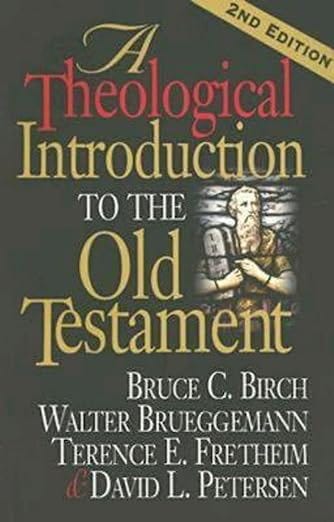On Faith and Violence
Wrestling with a biblical "lyric of hate" after Saturday's shootings
The shooter alleged to have killed one Minnesota legislator and her husband and wounded another and his wife has been in custody for less than two days. We’re bound to learn more about Vance Boelter and his motives as the investigation continues. But unless some new evidence contradicts what reporters from media as diverse as the Associated Press, Religion News Service, and Wired have already found, two things seem to be true about Boelter: He believed that it was right to kill politicians with whom he disagreed, and he was an evangelical Christian.
I would like to claim that the two halves of that sentence are contradictory. That a man who talked about his teenaged conversion to Christ while preaching in Africa could not possibly have shot four people in cold blood early Saturday morning. That a self-reported graduate of a “Spirit-filled Bible School” who founded his own Christian ministry could not have meant to harm dozens more people named on a list in his car.
To be sure, the Christianity I’ve known has always had within it a strong aversion to violence. I didn’t grow up in any of the historic peace churches, but if I were to ask all the Christians I’ve known well, I’m sure 99% would say that taking human life could never be more than a rare, tragic necessity: a last resort regretfully done for a just cause in the hope of restoring peace.
But throughout history, there have been Christians who have killed for other reasons, rationale that seem as indefensible and wicked to us now as they seemed faithful and righteous to those followers of Jesus at the time.
I’m sure we’ll learn more about why Boelter did what he did, but it wouldn’t surprise me at all to find him articulating a Christian case for his political violence. If it weren’t so obscure, he might even appeal to the minor prophet whose book I was writing about on Saturday morning, stopping when I heard the news of Rep. Melissa Hortman’s murder.
I normally use the readings scheduled in the Revised Common Lectionary for my Sunday Devotions series, but this summer I thought I’d occasionally explore texts left out of the lectionary. Where better to start, I thought last weekend, than with Nahum, what the late Walter Brueggemann and his co-writers called “one of the oddest books of the Old Testament”? But then Saturday’s awful news broke, and I decided I needed to sit with what I’d written for a few more days, turning a short devotion into this longer essay.
Brueggemann and the other authors of A Theological Introduction to the Old Testament describe Nahum as being full of “unrestrained glee at the failure of the hated city of Nineveh.” With no apparent “concern for or sympathy with those now savaged” in the capital of the Assyrian Empire, Nahum promises “Devastation, desolation, and destruction!” (Nah 2:10) to a city now vanished from the face of the Earth. As Brueggemann et al. anticipated, my initial reaction to re-reading Nahum was to find his “lyric of hate, retaliation, and vengeance, completely devoid of compassion… awkward and embarrassing in the Bible.”1
Nahum’s name means “comfort,” but he worships a God who discomfits this Christian: an “avenging and wrathful” warrior-judge who “takes vengeance on his adversaries and prolongs it against his enemies” (1:1-2). As I reached Nahum’s closing diatribe against the Assyrian Empire, I wondered if I serve the same Lord as the one who promises to “throw filth at you and treat you with contempt and make you a spectacle” (3:6)?
Troubling as that is, Brueggemann et al. did not discard Nahum out of hand. Whatever else we have to say about that prophet, he reminds us that God takes the side of the oppressed against their oppressors.
Keep reading with a 7-day free trial
Subscribe to The Pietist Schoolman to keep reading this post and get 7 days of free access to the full post archives.


